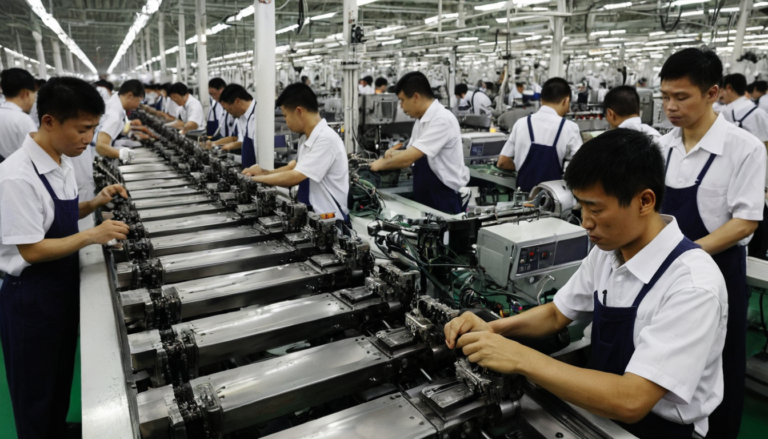The Growing Trade Dispute Over Electric Vehicles: EU vs. China
As tensions rise between the European Union (EU) and China, the electric vehicle (EV) market has become a central point of contention. The EU’s investigation into Chinese EV imports and China’s retaliatory actions signal the potential for a significant trade dispute. This article delves into the dynamics of this emerging trade conflict, its potential impact on global trade, and how businesses can successfully navigate these challenges with the help of China Agent Ltd..
The Context: EU's Investigation into Chinese EVs
The European Union has initiated an investigation into Chinese electric vehicles, aiming to determine whether these vehicles are being sold below market prices or unfairly subsidized by the Chinese government. Led by European Commission President Ursula von der Leyen, this investigation seeks to protect the EU’s automotive industry from what it considers to be unfair competition.
Surge in Chinese EV Imports: Between 2021 and 2023, imports of Chinese EVs into Europe more than doubled, exceeding 430,000 vehicles annually, with a value of €10 billion. This growth has raised concerns among European automakers and policymakers about the impact of low-cost Chinese EVs on the local market.
Potential Tariffs: Currently, the EU imposes a 10 percent tariff on all imported vehicles. However, analysts suggest that this tariff could rise to as much as 50 percent for Chinese EVs if the investigation concludes that Chinese imports are unfairly priced. This could significantly alter the trade dynamics between the EU and China.
Implications for the European Market: European manufacturers such as Mercedes, Volkswagen, and BMW, which have strong joint ventures in China, face potential strategic challenges. The outcome of this investigation and the imposition of tariffs could affect both their operations in Europe and their presence in the Chinese market.
China's Retaliatory Measures
In response to the EU’s investigation, China has launched its own probe into European products, notably targeting French cognac. This reciprocal move suggests that both sides are gearing up for a broader trade conflict, potentially escalating the tensions.
Impact on French Cognac: China’s investigation into “wine-distilled brandies from the EU” has raised concerns among French cognac producers, who fear they could become collateral damage in the dispute. This is particularly significant as France has been a vocal supporter of the EU’s investigation into Chinese EVs.
Tariffs on European Luxury Cars: China is also considering imposing higher tariffs on European luxury cars, especially those with larger engines. This would directly affect brands like Porsche, which rely heavily on the Chinese market. While high-end cars can absorb some of the costs, the broader impact on European exports could be substantial.
Strategic Investments: In an effort to circumvent potential tariffs, Chinese companies like BYD and battery-maker CATL are making strategic investments in factories located in Hungary and Mexico. These investments aim to bypass EU and U.S. tariffs by producing EVs and components locally.
Broader Implications for Global Trade
The EU-China trade dispute over electric vehicles is not an isolated issue but part of a broader trend of rising protectionism and geopolitical tensions that are reshaping global trade.
Impact on Supply Chains: The EV industry relies on complex global supply chains, and the imposition of tariffs or trade barriers could disrupt these networks, causing delays and cost increases. Companies must adapt quickly to changes in the market to remain competitive.
Technological Collaboration: Many EV projects involve significant cross-border technological collaboration. Rising tariffs and trade barriers could hinder these partnerships, slowing down the innovation and development that are essential for the future of the EV industry.
Navigating Regulatory Challenges: With shifting trade policies and regulations, businesses must stay informed and agile to avoid compliance issues and potential penalties. Staying ahead of these changes is crucial for maintaining business continuity.
How China Agent Ltd. Can Help
Navigating the complexities of a trade conflict requires strategic planning, informed decision-making, and expert guidance. China Agent Ltd. offers a range of services to help businesses address the challenges of this growing trade war.
Local Expertise and Market Insights: Our team provides valuable market intelligence and insights into local conditions, helping businesses understand the potential impact of geopolitical developments on their operations.
Strategic Sourcing and Supplier Diversification: We assist companies in diversifying their supply chains and identifying alternative sourcing strategies to minimize risks associated with tariffs and trade barriers.
Regulatory Compliance and Legal Support: Our legal experts ensure that your business remains compliant with changing trade regulations and policies, protecting you from potential penalties and disruptions.
Real-Time Monitoring and Risk Management: Through advanced technology and proactive strategies, we offer real-time monitoring of your supply chain and help manage risks to keep your operations running smoothly.
Conclusion
The escalating trade conflict between the EU and China over electric vehicles highlights the growing importance of resilient supply chains and the need for businesses to stay informed about geopolitical developments. With China Agent Ltd. providing expert support, businesses can effectively navigate these challenges and ensure long-term success in the global marketplace. Contact us today to learn more about how we can help you manage these complexities and achieve your business goals.

